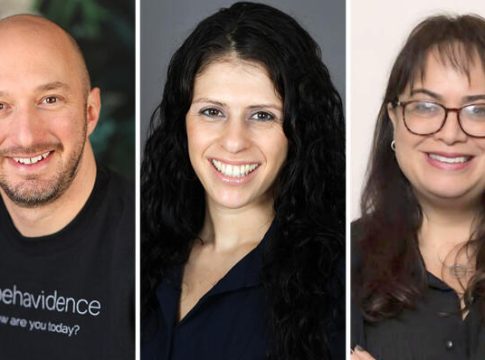Navigating Mental Health in Israel’s Current Climate: A Call for Compassionate Solutions
As Israel faces the profound psychological impact of ongoing conflicts, beginning with the Hamas attacks on October 7 and continuing with heightened tensions involving Iran, its citizens are grappling with a complex emotional landscape. Even with a temporary ceasefire, the psychological aftereffects of these events linger, highlighting an urgent need for mental health support across the nation.
The Strain on Mental Health Resources
The mental health system in Israel is experiencing significant strain, revealing systemic challenges that hinder access to care. There are notable shortages of mental health professionals, disparities in service availability, and persisting stigma surrounding traditional therapy modalities. According to projections, by 2025, the mental health burden in Israel could equate to around 183 million disability-adjusted life years (DALYs). As the demand for support grows, innovative solutions are emerging, particularly in the realm of technology-enabled mental health services.
Embracing Digital Therapies
Emerging Options for Support
Digital therapies are gaining attention for their accessibility and effectiveness. Platforms like Kai.ai, Calmigo, and Behavidence represent a shift toward technology-driven mental health care. These tools are particularly beneficial for individuals who might feel hesitant to engage with conventional therapy due to fear of stigma or logistical barriers.
- Kai.ai merges AI with human support, helping over 200,000 people, especially during times of crisis.
- Calmigo offers a handheld device designed to activate the body’s relaxation response, providing immediate relief without the need for prescription medication.
- Behavidence uses passive phone data to identify mental health patterns, allowing for early interventions.
These tools work alongside established services, enhancing the capacity to meet increasing needs.
Acknowledging the Need for Human Connection
While technology can significantly support mental health efforts, it is essential to understand that these solutions are not replacements for the empathetic, human touch that traditional therapy offers. Mental health professionals across the spectrum agree that a hybrid model, combining human insight with technological support, is a promising pathway forward.
Key Insights:
- Therapeutic Relationships Matter: Human connection remains at the heart of effective therapy. While AI can assist, it should complement—rather than replace—the role of therapists.
- Empowering Self-Help: Individuals are increasingly open to exploring digital tools for their mental well-being. The stigma around seeking help is decreasing, making space for diverse approaches to healing.
Moving Toward a Holistic Approach
As Israel navigates these challenging times, a collaborative approach that integrates traditional therapies with innovative technology could chart a new course for mental health services. Solutions must be:
- Accessible: Ensuring everyone can reach the help they need, regardless of their circumstances.
- Personalized: Tailoring approaches to fit the unique needs of individuals.
- Compassionate: Preserving the essence of human interaction within mental health care.
In conclusion, while the mental health challenges in Israel are significant, the evolution of support systems through technology offers hope. By driving towards a more inclusive and compassionate model of mental health care, we can empower individuals to seek the support they deserve. This moment not only calls for resilience but also reminds us of the importance of community and connection in the healing journey.

Covers wellness, nutrition, mental health, and daily life tips.
Bio: Talia brings a background in health journalism and holistic living to help readers live better, one tip at a time.

